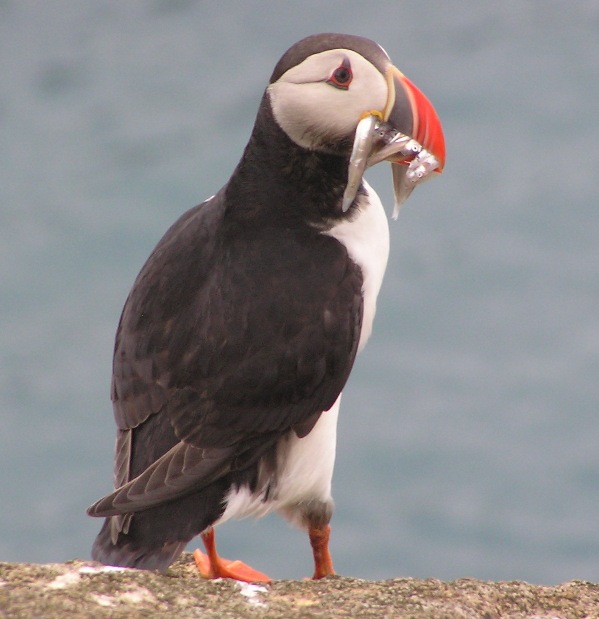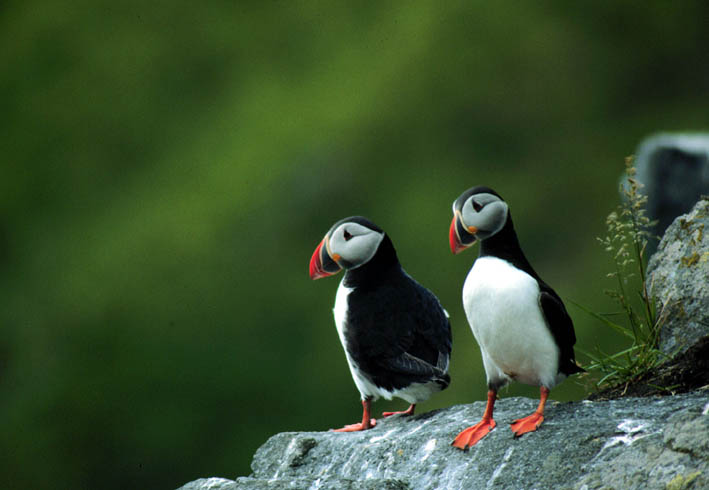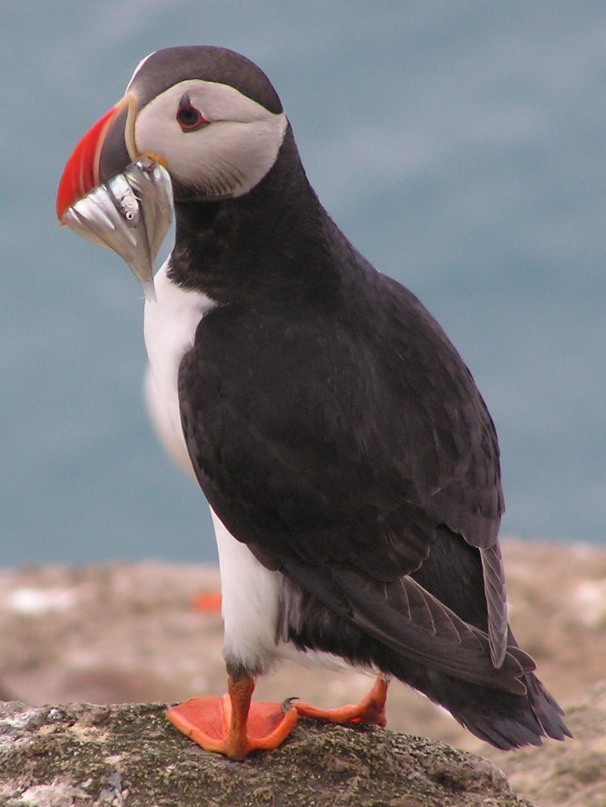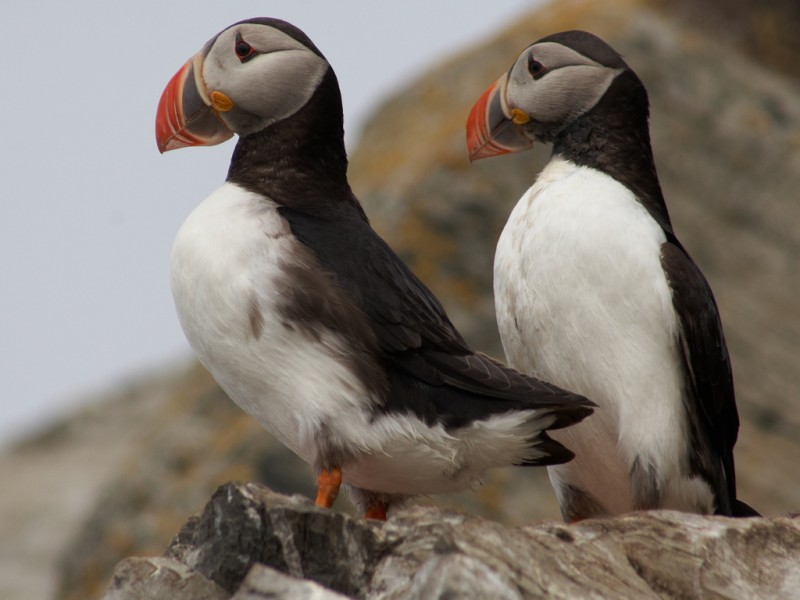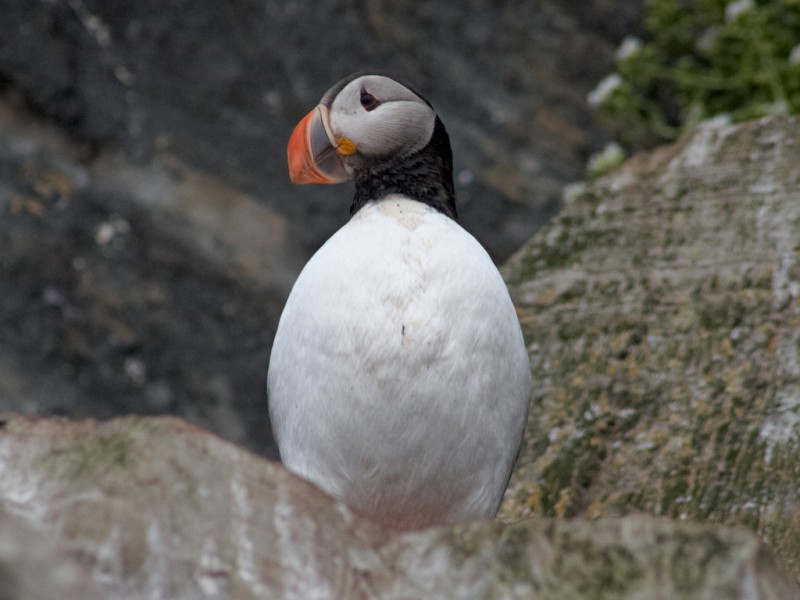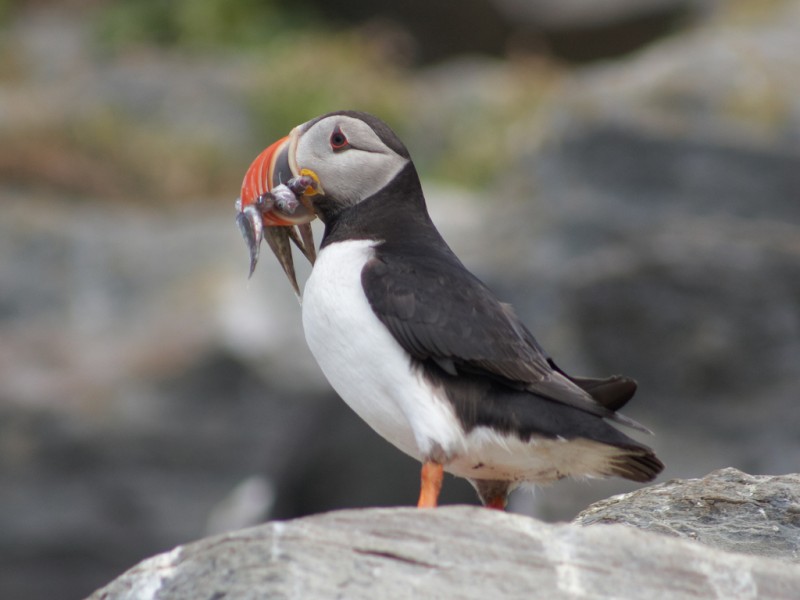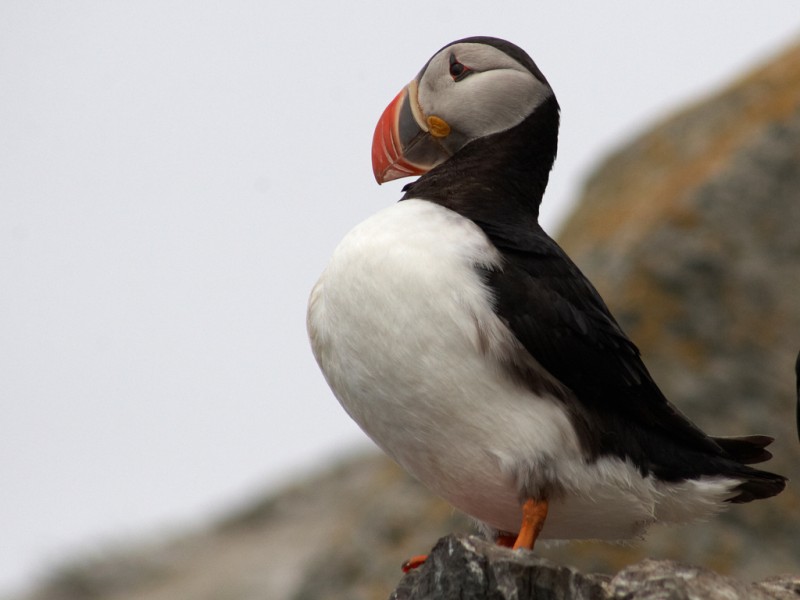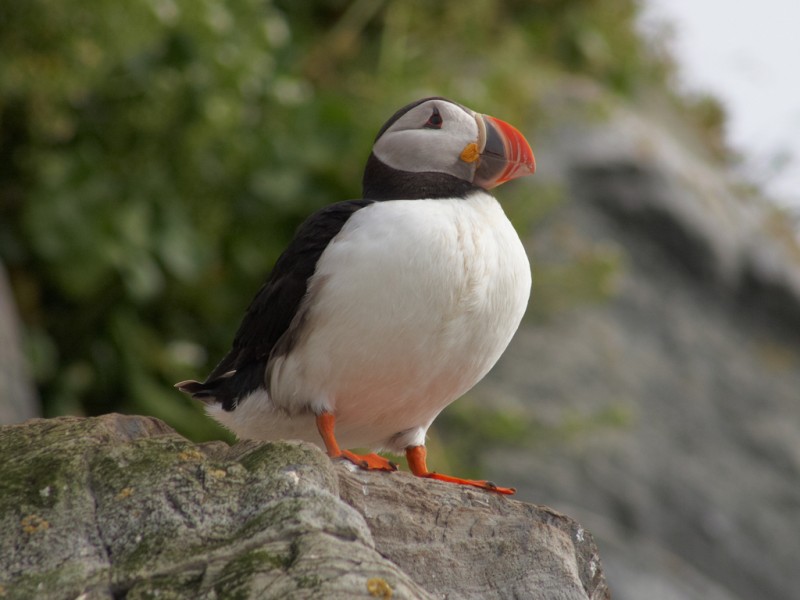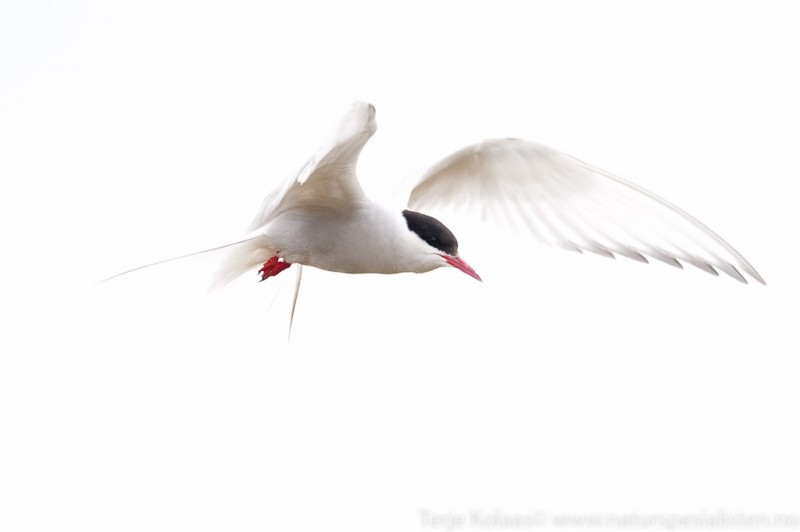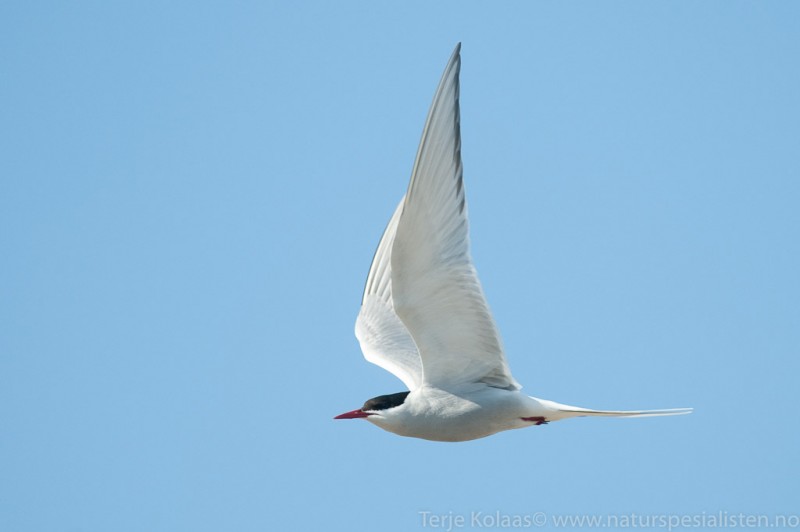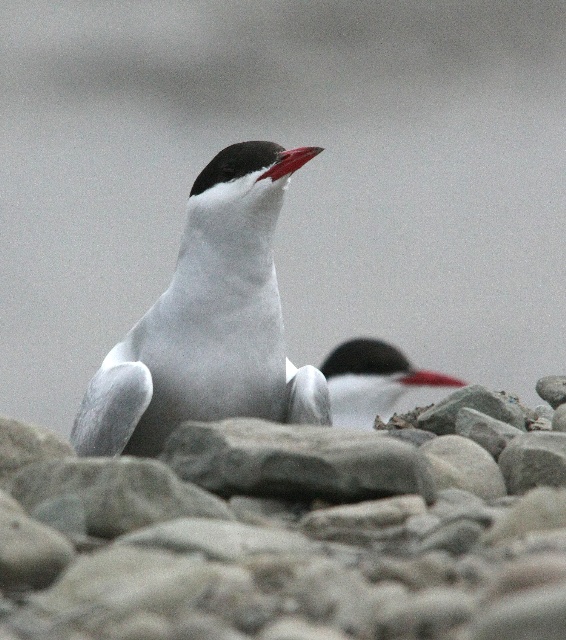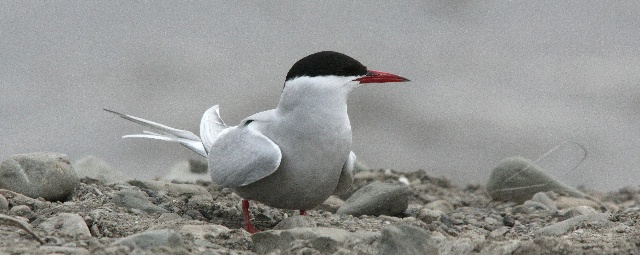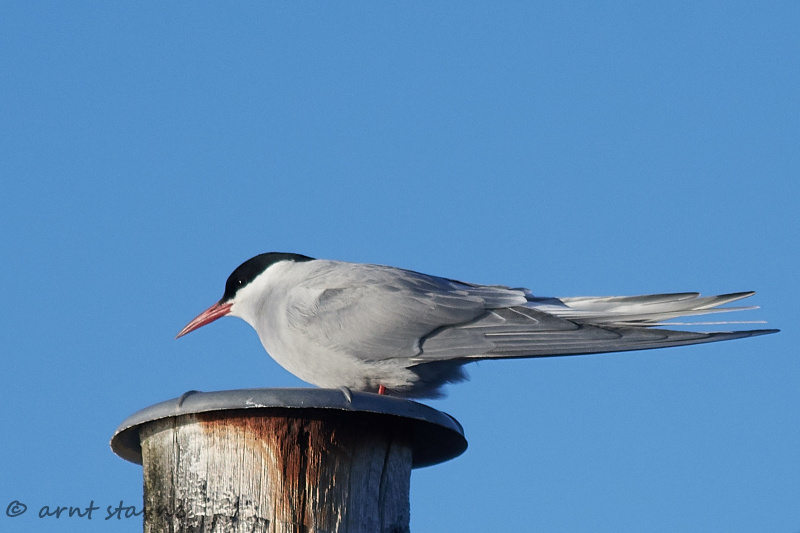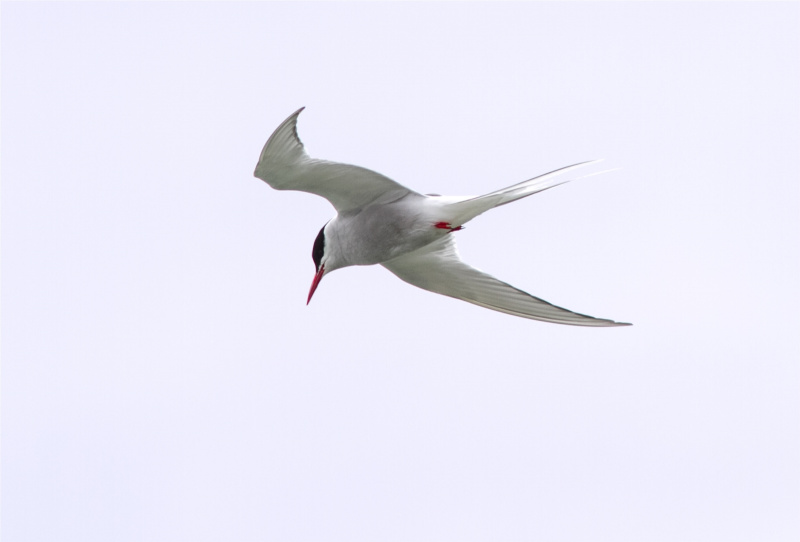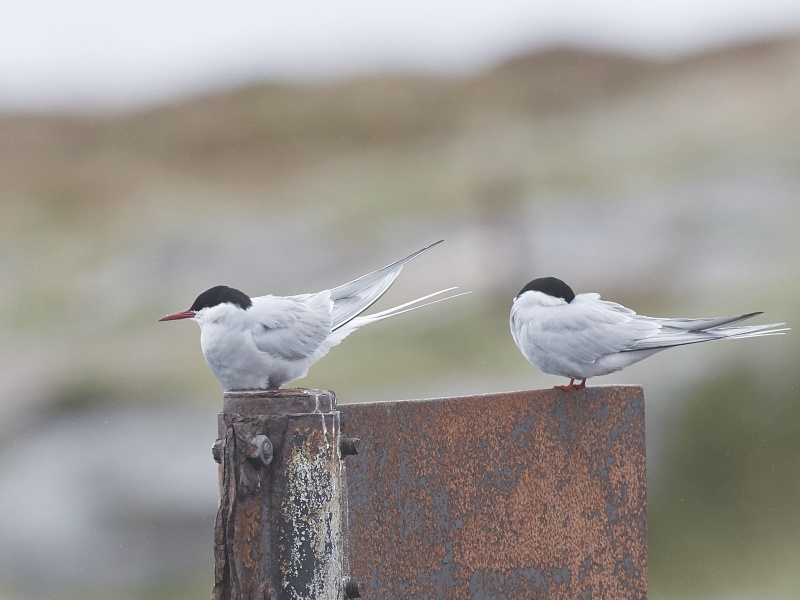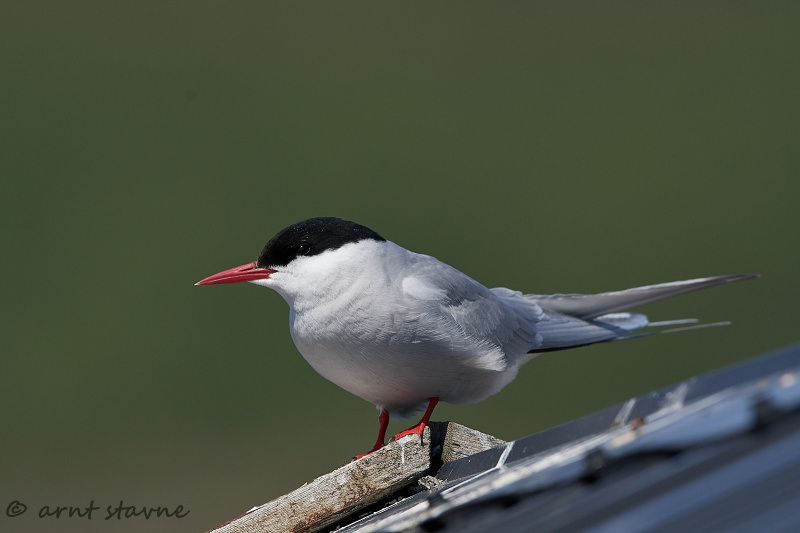Puffin (Fratercula arctica)
Arctic Tern (Sterna paradisaea)
Adults in summer at close range unmistakable. Bill in juveniles almost black, and much less deep than in adults. Adults in winter plumage also show much darker bill and cheeks than in summer. At a distance head gives an all dark impression, with characteristic dark "shadow " in front of the eye. Head and bill less elongated than in other auks. Wings rounded with dark undersides. "Thighs" dark. Flight fluttering and energic, with shifting weight and angle.
Sound:Deep, but not so coarse as Razorbill. Smoother and more gliding changes in pitch, like a "slow-motion" laugh or distant chainsaw; "aaaahrrr, aahr, ahr arh".
Contact call:
Distribution:
Wikipedia: map (se also Xeno-canto below)
Ecology:Birdlife ecology
Links:
Observation.org Latest observations
Image search Flickr NB! May give other species
CCCC-photo:zanzamos, Licence,Link.
Sounds:Recorded by Hans Petter Kristoffersen,http://www.xeno-canto.org ,CC license
Differs from Common Tern in shorter head, and blood-red bill. Legs shorter, but tail streamers longer (extends well past wings in sitting birds). Underparts of primaries with sharply bordered dark trailing edge (diffusely bordered in Common Tern). Both primaries and secondaries transparent to sunlight. Crest less apparent than in Common Tern and underside greyer. Cheeks white just below the black cap, often in contrast to grey lower cheeks. Juveniles lacks buff coloured back.
Sound:Similar to Common Tern but higher pitched. Typical call a series of high pitched "tip-tip-tip", and longer, ringing, high-pitched "kriiiiii" calls. The drawn out "kree-aaahh" call falls less distinctly in pitch than Common Tern.
Calls:
Distribution:
Wikipedia: map (se also Xeno-canto below)
Ecology:Birdlife ecology
Links:
Observation.org Latest observations
Image search Flickr NB! May give other species
CC
 English
English Albanian
Albanian
 Armenian
Armenian
 Bulgarian
Bulgarian
 Catalan
Catalan
 Croatian
Croatian
 Czech
Czech
 Danish
Danish
 Dutch
Dutch
 Finnish
Finnish
 French
French
 Georgian
Georgian
 German
German
 Greek
Greek
 Hungarian
Hungarian
 Italian
Italian
 Latvian
Latvian
 Lithuanian
Lithuanian
 Macedonian
Macedonian
 Norwegian
Norwegian
 Polish
Polish
 Portuguese
Portuguese
 Romanian
Romanian
 Russian
Russian
 Sami : Lule sami
Sami : Lule sami
 Sami : North sami
Sami : North sami
 Sami : South sami
Sami : South sami
 Scientific names
Scientific names
 Serbian
Serbian
 Spanish
Spanish
 Swedish
Swedish
 Ukrainian
Ukrainian


